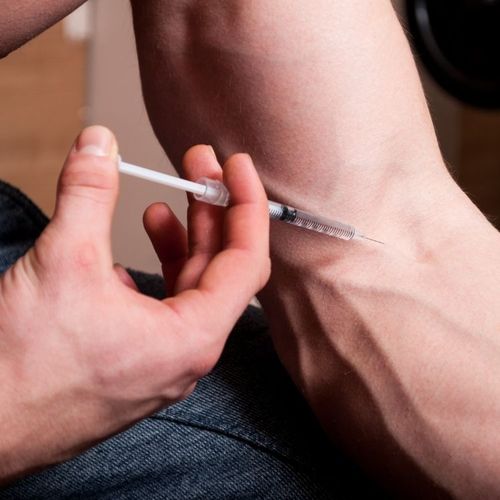While Major League Baseball owners and the players' union have agreed on a stricter policy to combat the use of performance-enhancing steroids, scientist are exploring the potential dangers posed by these drugs.
"There has been a tremendous disconnect between the conviction of athletes that these drugs are effective and the conviction of scientists that they aren't, " says Cynthia M. Kuhn, a Duke University professor of cancer biology and pharmacology. " In part, this disconnect results from the completely different dose regimens used by scientists to document the correction of deficiency states and [the dose regimen used] by athletes striving to optimize athletic performance."
Intuitively steroids seem to put athletes in harm's way while giving those who use them an unfair advantage over those who don't. But the scientific community
has little strong data to back up either assertion.
According to the National Institute on Drug Abuse, information on the health effects from the long-term abuse of anabolic steroids are only based on anecdotal reports, not randomized clinical trials, which would be unethical, if not illegal.
The Best Evidence
Perhaps the best evidence on the dangers of anabolic steroids comes from once-secret East German medical reports from 1970s and 1980s, when athletes from that country-particularly women-were setting astonishing records in track and field ass well as in swimming. Some of those records of a generation ago still stand.
Werner W. Franke, of the German Cancer Research Center in Heidelberg, reported in 1997 in the journal Clinical Chemistry that for years the East Germans gave anabolic steroids to several thousand athletes of both sexes, including minors. "Special emphasis was placed on administering androgens to women and adolescent girls because this practice proved to be particularly effective for sports performance, "he wrote. "Damaging side effect were recorded, some of which required surgical or medical intervention."
These side effects sometimes resulted in irreversible damages, including virilization, increased growth of body hair, voice changes and disturbances in libido. There were also cases of enlarged livers.
More Recent Cases
These days, the idea for athletes is to gain an edge-not too much of an edge to risk their health, but enough to achieve their athletic goals-along with the financial rewards that follow. The problem is that no one knows which athletes' bodies will get away with a little cheating and which will succumb to the potential dangers.
Lyle Alzado, who played pro football for 15 years, died from brain cancer in 1992 at the age of 43. He told Sports Illustrated that he began taking anabolic steroids in college in 1969. After he became ill, Alzado said, "If you are on steroids or human growth hormone, stop. I should have."
Ken Caminiti, a major League Baseball player who won the National League Most Valuable Player award in 1996, died from a heart attack at the age of 41. Although his death has been linked to cocaine use, Caminiti was another athlete who told Sports Illustrated that he used steroids in his MVP season, when he achieved career-high statistics.
Jason Giambi, the New York Yankees first baseman, admitted that he used steroids, along with other drugs, and that his body essentially broke down during the 2004 season.
Were Giambi's orthopedic woes the result of his abuse of performance-enhancing drugs? Did the benign tumor he developed-reportedly a pituitary growth-arise from a female fertility drug called clomiphene (Clomid) he reportedly told a grand jury he took to bulk up? There's no way to prove that either condition was caused by performance-enhancing drugs. Yet, steroids can have orthopedic side effects and clomiphene can exacerbate a pituitary tumor.
The New Threats
Newer "designer" steroids can defy testing, but they are just risky as the old-fashioned variety. Giambi's grand jury testimony reportedly contained a reference to taking the steroid tetrahydrogestrinone (THG) called "the clear" because, until recently, it was undetectable by standard testing.
Athletes seeking to enhance performance can also use recombinant human growth hormone (hGH), which enhances muscle growth, and erythropoietin (EPO) "blood doping," which increases oxygen delivery to the muscles. Both are extremely difficult to detect.
"Human growth hormone is a potentially dangerous drug, which when used by adults can lead to diseases having significant mortality rates," according to the US Justice Department. This government agency continues, "Its misuse in adults poses a wide array of serious side effects, including significant cardiovascular disease, irreversible enlargement of the heart and development of polyps and malignancies of the colon," although it has offered no significant studies to back up this assertion.
